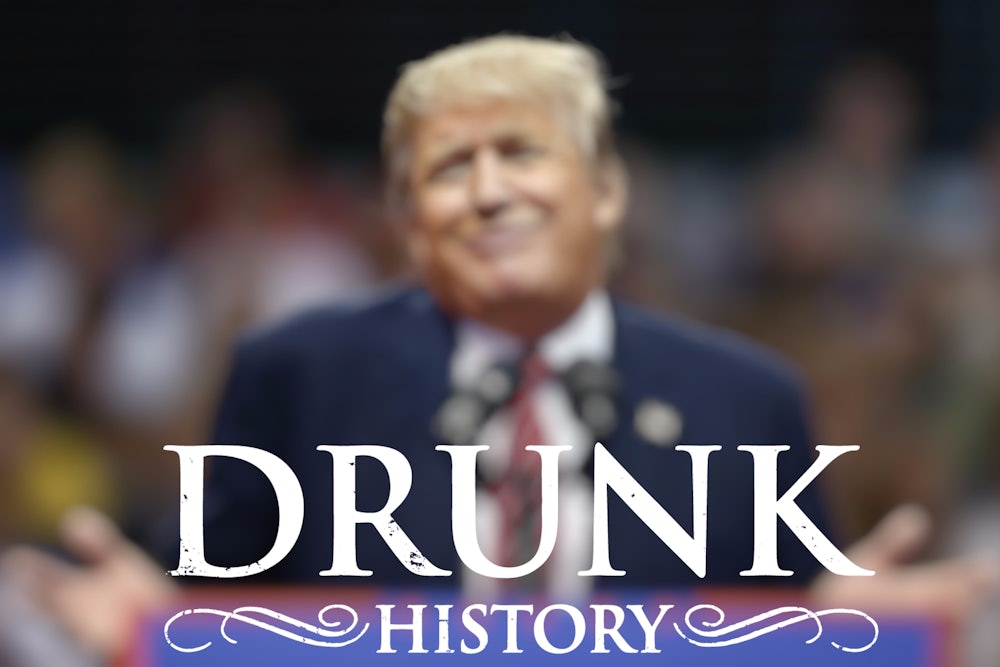The Trump administration has a strange fixation with Napoleon Bonaparte. Both unofficial Trump adviser Roger Stone and official adviser Steve Bannon own paintings of themselves dressed as the Corsican conquerer. In an interview released last night by the New York Times, the president spoke at length about Napoleon, but with such inaccuracy and lack of precision that it recalled the Comedy Central show Drunk History. According to the transcript, Trump said:
Well, Napoleon finished a little bit bad. But I asked that. So I asked the president, so what about Napoleon? He said: “No, no, no. What he did was incredible. He designed Paris.” [garbled] The street grid, the way they work, you know, the spokes. He did so many things even beyond. And his one problem is he didn’t go to Russia that night because he had extracurricular activities, and they froze to death. How many times has Russia been saved by the weather? [garbled]
[crosstalk/unintelligible]
Same thing happened to Hitler. Not for that reason, though. Hitler wanted to consolidate. He was all set to walk in. But he wanted to consolidate, and it went and dropped to 35 degrees below zero, and that was the end of that army.
[crosstalk]
But the Russians have great fighters in the cold. They use the cold to their advantage. I mean, they’ve won five wars where the armies that went against them froze to death.
The president’s comments need some annotation. The Napoleon who “designed Paris” was Napoleon III (1808-1873), the nephew of the original Napoleon (1769-1821). It’s not clear what Trump means by saying that the “extracurricular activities” of one night led the first Napoleon to lose the Russian war, which was a large-scale military defeat over many months. Nor is it immediately obvious which “five wars” Russia won using “the cold to their advantage.” The three obvious examples are the Great Northern War, Napoleon’s invasion of 1812, and the Second World War. It could be that during his animated conversations with Russian President Vladimir Putin, Trump learned about some other minor wars that fit this pattern.
The one consolation from Trump’s reflections on Europe’s past is that he has learned one of the most important lessons in history: Never invade Russia in the winter.
